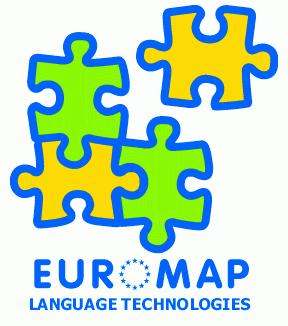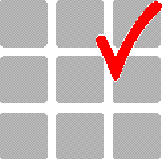



|

|

|
|
Mikro Værkstedet
A/S: attaching increasing importance to technology transfer
Mikro Værkstedet was established in 1984 by the council of Odense as a public institution with 2 employees. The purpose was to develop teaching material for computer studies in state schools. These very first programmes designed to give pupils some knowledge of the possibilities of a computer were very popular at the time. However, in 1984 the total number of computers in Danish state schools was only a few thousand and even with exports to Sweden and Norway the market was extremely small. Therefore Mikro Værkstedet also began dealing in products of other software-producers and they sold their expertise as consultants. In 1991 Mikro Værkstedet became a limited liability company employing 4 people and from then on things started to move faster. The number of computers in Danish schools grew rapidly and computers were no longer used just to teach computer studies. The use of computers to support the teaching of other subjects, e.g. Danish, became increasingly popular. Mikro Værkstedet Today Today Mikro Værkstedet A/S has 43 people on the payroll and they cover a wide range of activities, still focusing on the educational sector. Mikro Værkstedet still sells products from other producers as well as their expertise as consultants and they develop English grammar and maths software, but their main focus is on the development of educational software to support reading and writing in Danish. "So far we have aimed our research and development almost entirely at the educational sector where we are a leading player, but we have reached a point now where we are ready to approach other sectors". Though Mikro Værkstedet develops different kinds of software for teaching purposes they primarily work on language technology. "We have 7-8 people in our research and development department, in some periods as many as 12 people. More than half of their time is spent on development of language technology software." So far all language technology software available from Mikro Værkstedet has been developed by Mikro Værkstedet and does not contain language technology components supplied by other research institutions. "But this will change very soon. We have some software in development and even more on the drawing board involving technology transfer". Software for the educational sector "You might say that we were born in the educational sector and therefore it has always been natural for us to work in this environment and, besides, people within this sector have an open mind to new ways of doing things." But Mikro Værkstedet does not only supply state schools with teaching material - they are reaching a much wider audience now. They have developed software for foreigners taking courses in Danish. This programme introduces the user to different grammatical topics and the users' answers are corrected automatically by the system. Mikro Værkstedet's software for different kinds of communication handicapped people is also a great success. "These groups are represented by organisations with highly qualified people who are always on the look-out for tools that can make life easier." Another programme developed by Mikro Værkstedet, "CD-ORD3" for Danish, can read out to the user, highlight the words while reading and check the spelling of a document. The programme uses digital speech supplemented with synthetic speech. "CD-ORD3" can e.g. read out a document while the user is writing it and when the programme finds a spelling mistake it will not just present the user with the different possibilities in writing. It will say "do you mean...? or do you mean...?" which is a great help for e.g. dyslexics. "CD-ORD3" has a big target group as it is highly relevant for children in their first school years, for bilingual users, some communication handicapped people and for all kinds of users, children or adults practising reading and writing. Mikro Værkstedet would of course like to reach an even wider audience and include the business sector in their clientele, but this has so far not been easy. "We have tried several times through the 90's, but have not had much luck. Perhaps the market was not quite ready or perhaps our software was still too teaching-orientated, but there is no doubt in my mind that things are changing fast now. The need for correct and precise communication is developing rapidly and with the software we have on the drawing board I think that we will soon reach a broader audience". Technology transfer potential "Our strongest points are really development of user friendly interfaces, adjustment of programmes to different kinds of users and we are experts when it comes to seeing what software components can be used for and how they can be combined with each other." Mikro Værkstedet would of course prefer to reuse existing technology, but until recently they found this quite difficult. The reasons are complex, but one of the problems is that research in language technology is primarily done in public institutions and these of course have different objectives from Mikro Værkstedet. "Many public institutions work on very interesting and challenging projects, but these projects are often chosen on the basis of considerations very different from ours. Besides, public institutions do not necessarily have to finish the work in a state where it can be used in the near future". Mikro Værkstedet can of course not work this way. They have to make a profit and this must always be kept in mind. "Many people are working with language technology, but to find out what is going on where and whether the research is in a form where it can be used, this is really the issue". Since 1996 Mikro Værkstedet has participated in the VISL (Visual Interactive Syntax Learning) project at the University of Southern Denmark. VISL is a research project aiming at the development of internet-based grammar tools covering many languages for education and research purposes. Mikro Værkstedet's participation in the project has been fruitful in many ways and has given Mikro Værkstedet the opportunity to meet new potential partners. This has resulted in several initiatives and one very concrete outcome is that Mikro Værkstedet has contracted with Lingsoft to use Lingsoft's Constraint Grammar parser, which is the basis of the grammar used in VISL. A programme under development right now is a spelling and grammar checker with facilities to categorise errors made by the user. In this system errors are entered into a log and used to form the basis for production of exercises tailored to the particular user. "Right now we are in an initial phase working on collection and categorisation of errors and therefore technology transfer is not yet planned in detail. But we expect that technology transfer will play an important role in this system and possible suppliers might e.g. be the University of Southern Denmark, the Danish Language Council and Centre for Language Technology." The Future Mikro Værkstedet's wish for the near future would be to establish even closer relations with research institutions. This would form a good basis for a more long-term plan to develop an advanced authoring tool. This tool should contain facilities to read out text, check grammar and spelling, categorise different types of errors and produce user specific exercises on request, communicate with different translation tools etc. Recommendations Differences in nature of private companies and public research institutions are in some respects substantial, but this should not prevent co-operation. Mikro Værkstedet's experiences with public research institutions have been very positive, but of course their work, perhaps particularly in the VISL project, has given them some valuable experiences that should be shared. "Co-operation should be highly structured with clearly defined work-packages, responsibilities, deadlines etc. It is very important to consider what you can contribute with in the particular context and the partners should clearly define their expectations to each other. Routines for communication and follow-ups are also essential." Lina Henriksen
|